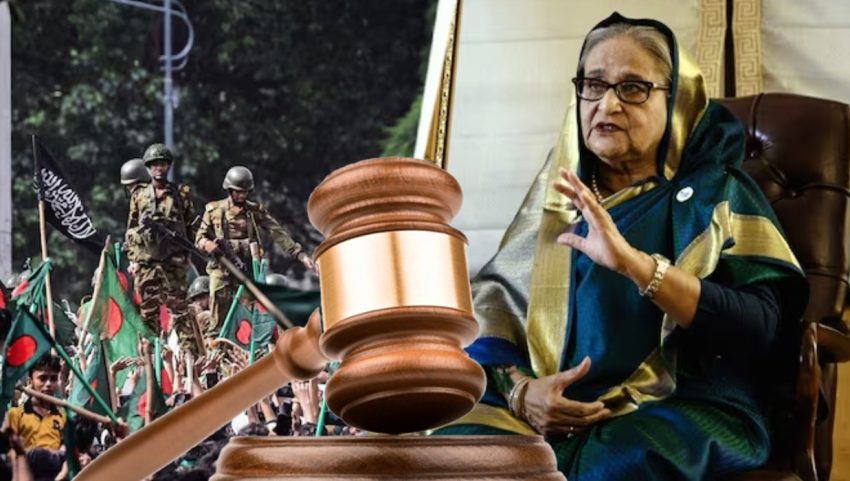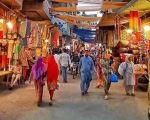ISLAMABAD – Bangladeshi court on Monday awarded death penalty to Prime Minister Sheikh Hasina for crimes against humanity. Across the country’s capital, huge screens set up by the Ministry of Cultural Affairs broadcast historic verdict, drawing anxious crowds.
A special tribunal in the capital accused the former ruler of being the “mastermind and principal architect” behind the violent suppression of student-led protests last year, which erupted over a controversial government job quota system and reportedly left around 1,400 people dead. Hasina is being tried in absentia.
Hasina’s son Sajeeb, said Hasina is safe in India under the protection of Indian security forces.
As Students demanded the harshest punishment for Hasina, her party Awami League is planning mass protests in response, and the political landscape is now plunged into unprecedented uncertainty ahead of next year’s elections. With the party barred from participating, Bangladesh enters uncharted territory.
Meanwhile, the streets of Dhaka are empty, with residents heeding the Awami League’s nationwide shutdown call.
Authorities are bracing for unrest. Dhaka Metropolitan Police Chief Sheikh Mohammad Sazzat Ali confirmed that officers have been instructed to fire on anyone attempting arson or attacking police.
The powerful Bangladeshi politician served as the country’s prime minister from 1996 to 2001 and from 2009 to 2024, becoming the longest-serving prime minister in history and the world’s longest-serving female head of government.
The daughter of Bangladesh’s founding president, Sheikh Mujibur Rahman, and a member of the influential Tungipara Sheikh family came forward in politics after her father’s assassination in 1975, taking exile in India and leading the Awami League as its president.
She played key role in restoring parliamentary democracy in 1991 and led her party to multiple election victories. Her tenure was marked by both achievements, such as providing refuge to Rohingya refugees, and controversies, including allegations of authoritarianism, corruption, election fraud, and human rights abuses. Widespread protests in 2024 led to her resignation as she escaped to India.
Sheikh Mujibur Rahman’s image removed from new Bangladeshi banknotes














